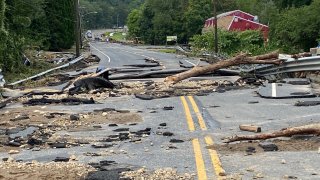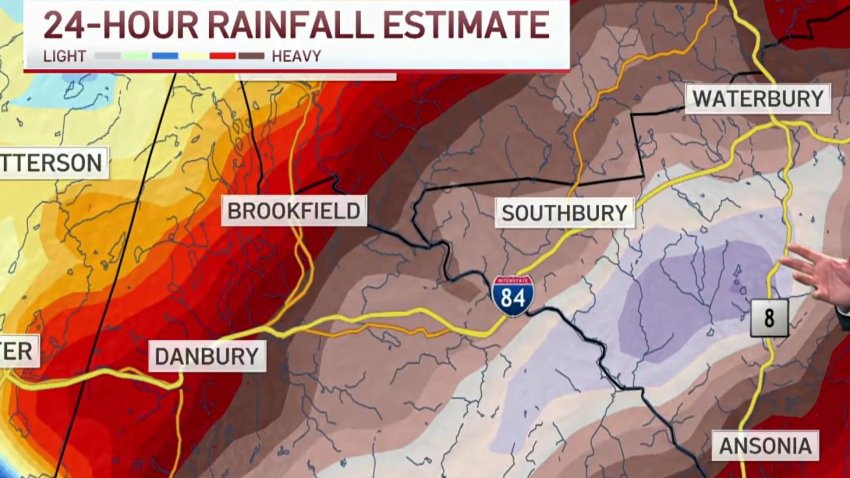
The state of Connecticut is trying to help towns adapt to climate change as severe storms become more frequent, including a potentially historic rainfall Sunday for towns in the Naugatuck River Valley.
This includes the Department of Energy and Environmental Protection’s Climate Resiliency Program, which gave out $8.8 million in its first year and expects to provide another $75 million in aid this year.
Stream Connecticut News for free, 24/7, wherever you are.
“We want to help communities to think – to try to future proof their infrastructure,” DEEP Commissioner Katie Dykes said Tuesday.
That’s not the only form of help cities and towns can get from the state.
Get top local Connecticut stories delivered to you every morning with the News Headlines newsletter.
The University of Connecticut’s Institute for Resiliency and Climate Adaption has been advising towns on how to address vulnerabilities.
“I think there’s a broad appreciation that there’s a to-do, but when it comes down to spending money, political decisions are difficult,” CIRCA Executive Director Jame O’Donnell said.
O’Donnell said climate adaption was focused on protecting shorelines after a series of major storms, including Superstorm Sandy in 2012.
Local
That has shifted to inland towns, though, as massive rainfall totals have overwhelmed aging infrastructure around the state.
The National Weather Service will review whether Sunday’s rain set a 24-hour record for Oxford.
“Flooding events like this --- like the one that occurred last weekend can occur anywhere in the state,” O’Donnell said.
CIRCA helps towns understand where they are vulnerable to flooding and other extreme weather, such as excessive heat.
It also works with towns to come up with solutions, sometimes on a regional basis. DEEP is not partnered with CIRCA, but towns can use Resiliency Program grants to address those vulnerabilities.
Those grants can be used to study potential problems, design plans and even cover local matches for federal aid.
One of those grants, which amounts to just over $500,000, went to the Greater New Haven Water Pollution Control Authority to study flooding in the Westville section.
For New Haven, it’s part of a years-long effort to adapt to climate change. The city is planning a $200 million flood control project for Long Wharf.
City Engineer Giovanni Zinn said storms like Sunday’s rainfall show municipalities need to rethink their infrastructure.
“Some parts of the valley saw a one in a thousand-year event, is that even a one in a thousand-year event anymore,” Zinn said.

The Resiliency Program also awarded a $690,000 grant to the Naugatuck River Valley Council of Governments to plan for wider culverts and upgraded drainage.
Some of the towns in that region include Oxford and Seymour.



